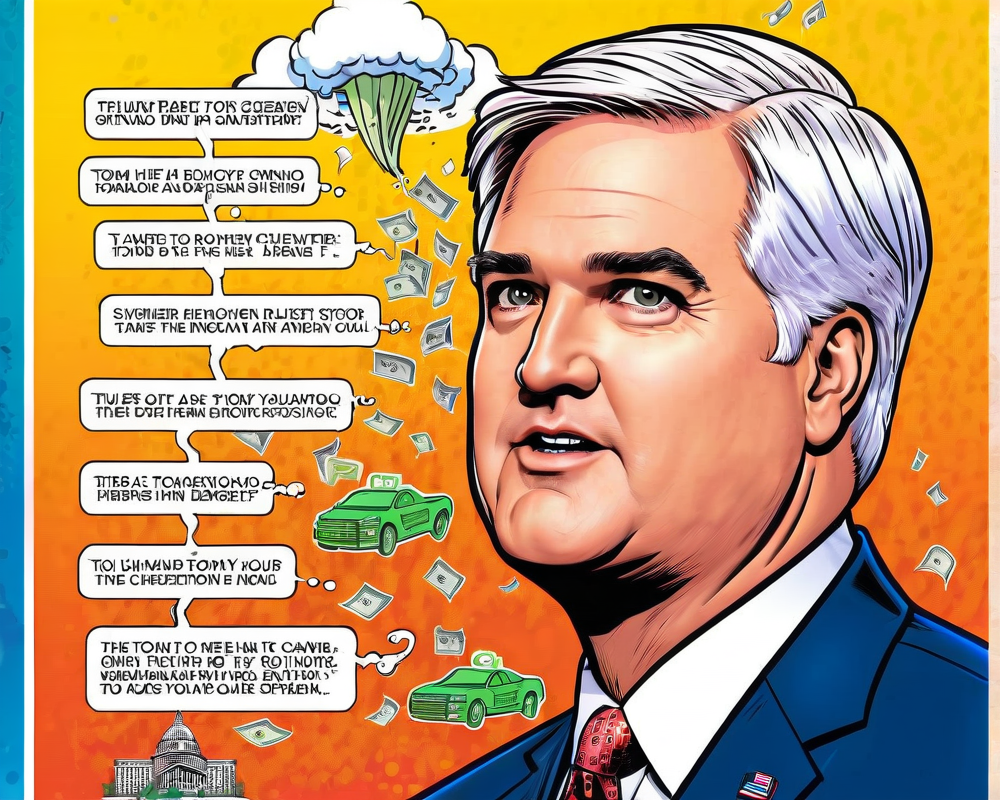The Controversy Surrounding Tornado Cash
On August 8th, the Treasury Department dropped a bombshell by sanctioning the cryptocurrency mixer Tornado Cash, leading to a whirlwind of questions in the crypto community. U.S. Congressman Tom Emmer jumped into the fray, sending a detailed four-page letter to Treasury Secretary Janet Yellen, seeking clarity on this unprecedented move.
Questions Posed by Emmer
In his letter, Emmer didn’t hold back. He challenged the Treasury’s Office of Foreign Assets Control (OFAC) regarding their interpretation of existing legal frameworks. With a hint of sarcasm, Emmer pointed out that OFAC had stretched the definition of a ‘person’ under Executive Order 13694 to include something as abstract as code. Excuse me, did I miss the memo on coding being a corporeal entity?
Clarifying the Undefined
Emmer emphasized a critical distinction made by the Financial Crimes Enforcement Network (FinCEN), which sees a line between anonymizing services and software. He insisted that OFAC’s actions raise more questions than answers:
- What does it mean for a blockchain-based mixer that isn’t controlled by a traditional individual or entity?
- Who or what entity does OFAC think is accountable for a decentralized operation like Tornado Cash?
The Status of Lawful Users
Beneath the surface of legal jargon, the fallout impacts real people. Emmer brought attention to the fate of law-abiding users whose funds may now be stuck in limbo. He questioned:
- How can users recover their funds?
- What recourse do smart contracts—essentially autonomous lines of code—have against OFAC’s decision?
Emmer’s Stance on Technology
Channeling the voice of many in the tech community, Emmer noted, “The growing adoption of decentralized technology will certainly raise new challenges for OFAC, but technology itself is neutral.” He underlined the notion that privacy in technology usage is a normal expectation, inviting a reflection on the balance between regulatory oversight and individual freedoms.
The Wider Implications
The flak from OFAC’s actions hasn’t quieted down. Emmer is not alone in his vocal opposition; the crypto advocacy group Coin Center is gearing up for a legal clash with the Treasury, expressing concern that such sanctions could set a dangerous precedent. With Emmer co-chairing the Congressional Blockchain Caucus, he’s poised to keep the pressure on, ensuring that the crypto landscape is navigated with a keen understanding of technology rather than hastily imposed regulations.
Final Thoughts
While the world tinkers with decentralized tech, the legislative vibes are shifting. Emmer’s letter is a reminder that the conversation about the legality of code needs to keep pace with innovation, or else we might find ourselves in a tug-of-war between a rapidly evolving digital ecosystem and the slow-moving gears of government. Who knew right and wrong could be so… codependent?




